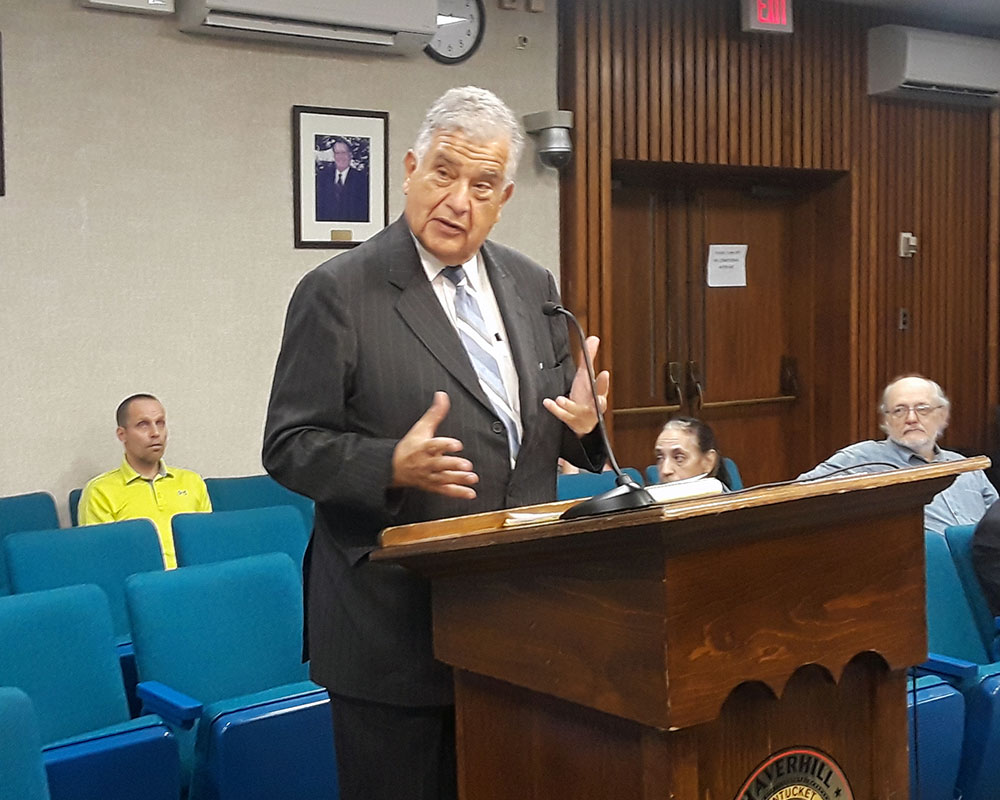A proposition by Mayor James J. Fiorentini to use $1 million in city surplus funds against Haverhill’s tax levy was opposed by the City Council. (WHAV News file photograph.)
Property taxes are going up for both households and businesses if the Haverhill City Council has its way.
In separate votes, councilors Tuesday night voted to tax to the state’s Proposition 2 ½ limit rather than offset increases with surpluses and approved a compromise plan to shift more of that tax burden onto businesses. The annual tax rate meeting pitted groups calling for greater education and public safety spending against those pleading that the city remain affordable. School pediatrician John L. Maddox made the case for the former.
“You’re worried about upsetting some people who have to pay a higher tax bill. And the thought came to me: what if the owners of the Red Sox, and the Patriots, and the Celtics and Bruins only cared about angry ticket holders when the ticket prices went up,” Maddox said.
At odds were various proposals to take anywhere from $500,000 to $1 million from city surpluses—to reduce the amount of tax hikes, or save the surplus—known as “free cash” —to pay for more services.
In the end, councilors voted to tax up to the full $104 million they are allowed to collect under the tax-limiting law. About another $100 million of the city budget comes from state aid, fees and other income.
Businesses will pay rates 62 percent higher than households in a compromise fashioned by Councilor Colin F. LePage. His plan was narrowly approved on a 5-4 vote after efforts to raise business taxes even more failed. LePage voted to approve the motion alongside Council Vice President Thomas J. Sullivan and Councilors Melinda Barrett, Mary Ellen Daly O’Brien and Michael S. McGonagle. Council President John A. Michitson and Councilors Joseph J. Bevilacqua, Timothy J. Jordan and William J. Macek opposed the motion.
According to City Assessor Christine Webb, the plan would set the residential tax rate at $14.03 and the commercial, industrial and personal rate at $25.26.
Mayor James J. Fiorentini told councilors, however, he reserves the right to kill the plans with his veto. After the meeting, he told WHAV that he believes “it’s unfair to residential taxpayers.”
In other news, plans to establish a zoning overlay for areas of Haverhill to host marijuana dispensaries were tabled to a later date. City Solicitor William D. Cox. Jr. advised the delay due to a lack of specificity in the proposed zones. The council unanimously approved the delay.

